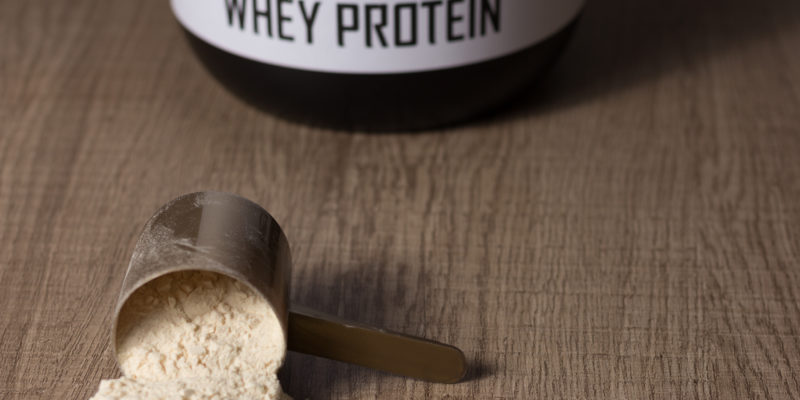Protein is one of the most essential nutritional sources for many athletes since it has a considerable impact on recovery and rebuilding muscle. But it also allows athletes to train more intensely for longer. Although whey protein was most popular during the 80s and 90s, with a lot of marketing help, protein powder has slowly become popular.
You no longer need to rely on meat and dairy as the only available sources of protein. Since plant-based diets, like vegan and vegetarian, have been gaining momentum, it’s easier and more delicious than ever to try out many different proteins from different sources. So, let’s make a few comparisons between protein powder and whey.
How They are Produced
Most athletes often choose whey since it is a complete protein. What that means is that aside from providing you with protein, it also has all nine essential amino acids that our bodies get from food. On the other hand, plant-based proteins usually have to be combined with other food to be “complete,” like beans and rice, for example.
However, it is wrong to think that only non-plant proteins are complete. Proteins like soy, quinoa, pea, chia, and sunflower also provide all nine essential amino acids, which makes them as good as whey protein in terms of providing you with all the necessary amino acids.
Nutrient Density
Nutrient density is another crucial thing to consider. Nutrient density is the number of nutrients that a particular food has per 1 calorie. Nutrient-dense foods are almost all fruits, veggies, and whole grains On the other hand, foods with a low nutrition density include most “junk” food, since they have very few nutrients and lots of calories; they are unhealthy for you in almost every possible way. For optimal health, it is vital to consume foods with a higher nutrient density.
However, although whey protein has a high protein concentration, it doesn’t have any other nutrients. On the other hand, plant-based proteins also provide the other needed nutrients.
Digestion and Health
The most recent studies show that around 65 percent of people suffer a lactose intolerance to some degree. Since whey protein is derived from milk, it might be a bit hard for some to digest. Some scientists say that the consumption of milk and milk products increases the risk of both cancer and various heart diseases. However, note that the additives in protein powders can also affect your health. No matter if you choose a plant- or dairy-based protein, be sure that they don’t contain substances such as maltodextrin, sucralose, or aspartame. Although all of these substances are legally approved, they are all associated with negative health issues, both in the long- and short-term. On the other hand, plant-based sources contain enzymes and fiber, which have a good effect on the digestion system. Also, if you choose a natural and organic product over a processed one, you will avoid all the harmful additives.
Resistance Training
Both whey and plant-based proteins are effective and rich in nutrients in different ways. One of the advantages that both have in common is that they provide you with the needed amount of “fuel” needed for successful resistance training. A study conducted in the International Society of Sports Nutritional Journal shows that 48 grams of whey or plant-based protein will provide the same gains when it comes to muscle development and overall body composition. The study showed that when you are building muscles, it doesn’t matter which protein you take since both whey and protein powder have the same effect in maximizing kinetic digestion before the exercise.
Taste of the Protein
When it comes to the taste of protein, we can’t say that one is better than the other, since this is entirely subjective. One good tip is to consider how will you be using the protein powder. You can use it as a shake, or by consuming it with other whole foods. You can also add it to your smoothies. You can do a little improvisation adding it to different foods to find the taste that suits you best.
Additional Information
First, you should know that eating the right amount of protein is very important for your health. Therefore, no matter if you take dairy- or plant-based protein powder, you can’t go wrong; both of them are good for your health. Also, note that there is a specific protein requirement that should be met on a daily basis. If you are not an athlete and don’t do any sports, you should ingest between 40 and 60 grams of protein daily, depending on your weight.
On the other hand, if you are a bodybuilder and want to gain mass and build big muscles, there is a specific calculation for your daily protein intake. Just take your weight in kilograms and multiply it by anything between 1.5, and you will get the recommended daily protein intake in grams. For example, if you weigh 80 kilograms, your recommended protein intake will be around 120 grams.
So, Which Protein is Better?
With all the information we provided, we can only conclude that the choice is up to you. As you may have noticed, both whey and protein powder (plant-based or dairy) will have the same effect on your muscles. However, if you are looking to build muscles, you should consider the other things that we mentioned. If you are sensitive to lactose, then you should choose plant-based proteins.
Another thing to consider is nutrient density. So if you are looking for a protein source with high nutrition density, you should again aim at plant-based protein sources. However, note that most of the whey protein options have all the necessary amino acids that your body gets from food. If that is what you are looking for, you might either consider proteins like soy, pea, and chia, or get dairy-based whey options. With all that in mind, the final choice is up to you!





Leave a Reply